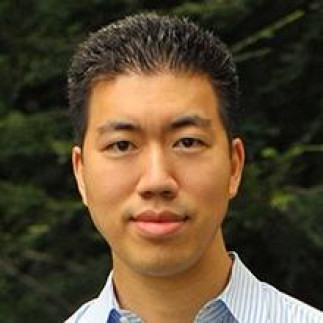Titre : Base Editing and Prime Editing: Genome Editing Without Double-Strand Breaks
Endroit: Pavillon Roger-Gaudry, Salle G-715
Hôte : Prof. Shawn Collins
Résumé:
Most genetic variants that contribute to disease are challenging to correct efficiently and without excess byproducts using standard nuclease-based genome editing methods. In this lecture I describe the development of two approaches to precision genome editing that do not require double-strand DNA breaks, donor DNA templates, or HDR. Through a combination of protein engineering and protein evolution, we developed two classes of base editors (CBE and ABE), proteins that enable all four types of transition mutations (C to T, T to C, A to G, and G to A) to be efficiently and cleanly installed or corrected at target positions in genomic DNA without making double-strand DNA breaks (Komor et al. Nature 2016; Gaudelli et al. Nature 2017). Base editing has been used by many laboratories around the world in a wide range of organisms. By integrating base editors with in vivo delivery strategies, we have addressed animal models of human genetic disease, in some cases with phenotypic rescue and lifespan extension.
I will also describe prime editing, a versatile and precise genome editing method that directly writes new genetic information into a specified DNA site using a catalytically impaired Cas9 fused to an engineered reverse transcriptase, programmed with a prime editing guide RNA (pegRNA) that both specifies the target site and encodes the desired edit (Anzalone et al. Nature 2019). We performed >175 edits in human cells including targeted insertions, deletions, and all 12 types of point mutations without requiring double-strand breaks or donor DNA templates. We applied prime editing in human cells to correct efficiently and with few byproducts the primary genetic causes of sickle cell disease (requiring a transversion in HBB) and Tay-Sachs disease (requiring a deletion in HEXA), to install a protective transversion in PRNP, and to precisely insert various tags and epitopes into target loci. Four human cell lines and primary post-mitotic mouse cortical neurons support prime editing with varying efficiencies. Prime editing offers efficiency and product purity advantages over HDR, complementary strengths and weaknesses compared to base editing, and much lower off-target editing than Cas9 nuclease at known Cas9 off-target sites. Prime editing substantially expands the scope and capabilities of genome editing, and in principle can correct most known pathogenic human genetic variants.
Biography :
David R. Liu is the Richard Merkin Professor, Director of the Merkin Institute of Transformative Technologies in Healthcare, and Vice-Chair of the Faculty at the Broad Institute of Harvard and MIT; Thomas Dudley Cabot Professor of the Natural Sciences and Professor of Chemistry and Chemical Biology at Harvard University; and Howard Hughes Medical Institute Investigator.
Liu graduated first in his class at Harvard in 1994. He performed organic and bioorganic chemistry research on sterol biosynthesis under Professor E. J. Corey’s guidance as an undergraduate. During his Ph.D. research with Professor Peter Schultz at U. C. Berkeley, Liu initiated the first general effort to expand the genetic code in living cells. He earned his Ph.D. in 1999 and became Assistant Professor of Chemistry and Chemical Biology at Harvard University in the same year. He was promoted to Associate Professor in 2003 and to Full Professor in 2005. Liu became a Howard Hughes Medical Institute Investigator in 2005 and joined the JASONs, academic science advisors to the U.S. government, in 2009. Liu has earned several university-wide distinctions for teaching at Harvard, including the Joseph R. Levenson Memorial Teaching Prize, the Roslyn Abramson Award, and a Harvard College Professorship.
Liu has published >180 papers and is the inventor of >70 issued U.S. patents. His research accomplishments have earned distinctions including the Ronald Breslow Award for Biomimetic Chemistry, the American Chemical Society Pure Chemistry Award, the Arthur C. Cope Young Scholar Award, and awards from the Sloan Foundation, Beckman Foundation, NSF CAREER Program, and Searle Scholars Program. In 2016 he was named one of the Top 20 Translational Researchers in the world by Nature Biotechnology, and in 2017 was named to the Nature’s 10 researchers in world and to the Foreign Policy Leading Global Thinkers.
Professor Liu’s research integrates chemistry and evolution to illuminate biology and enable next-generation therapeutics. His major research interests include the engineering, evolution, and in vivo delivery of genome editing proteins such as base editors and prime editors to study and treat genetic diseases; the evolution of proteins with novel therapeutic potential using phage-assisted continuous evolution (PACE); and the discovery of bioactive synthetic small molecules and synthetic polymers using DNA-templated organic synthesis and DNA-encoded libraries. Base editing (named one of four 2017 Breakthrough of the Year finalists by Science), prime editing, PACE, and DNA-templated synthesis are four examples of technologies pioneered in his laboratory. He is the scientific founder or co-founder of seven biotechnology and therapeutics companies, including Editas Medicine, Pairwise Plants, Exo Therapeutics, Beam Therapeutics, and Prime Medicine.

